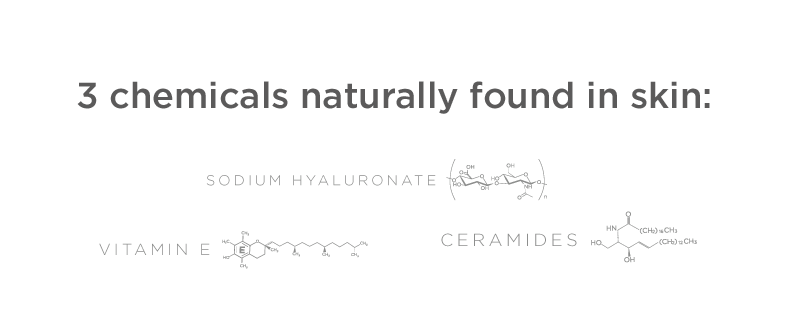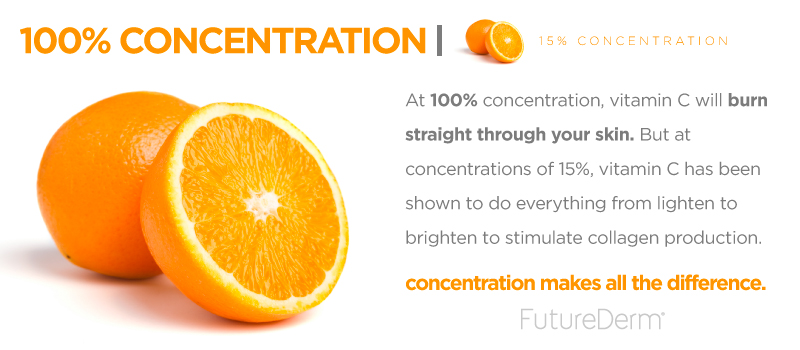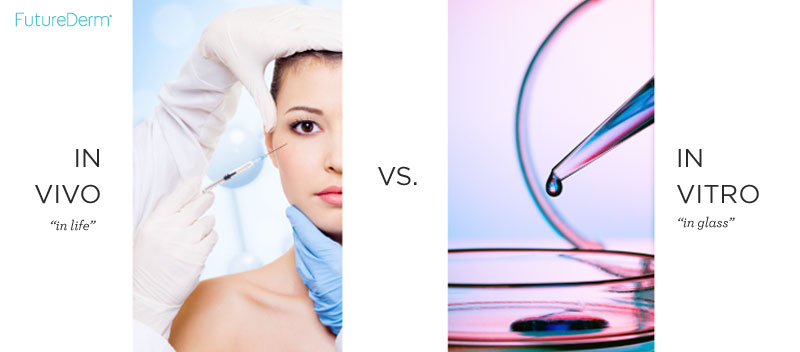Recently, some so-called scientists have been promoting the idea that sunscreen can cause skin cancer. The idea was first propagated by the Environmental Working Group several years ago, specifically stating that sunscreens containing retinyl palmitate could be harmful. Once this erroneous message was propagated through the media, it was then debunked vehemently by dermatologists, including the American Academy of Dermatology, who stated: “The American Academy of Dermatology (Academy) [has] reiterated the safety and effectiveness of sunscreens to protect against the damaging effects from exposure to ultraviolet (UV) radiation. As one component of a daily sun-protection strategy, sunscreen is an important tool in the fight against skin cancer, including melanoma, the deadliest form of skin cancer.”
Now, the issue has arose again as some self-serving scientists are propagating the myth to sell their own line of physical sunscreens.
According to an article published on Dr. Oz’s website, Dr. Arthur Perry, M.D., FACS, who admits to owning his own skin care line with chemical-free sunscreens, teams up with another scientist, R. Thomas Zoeller, MS, PhD. Together, these two come up with the idea that “sunscreens are applied to skin in a formulation that serves as a drug delivery system and […] some sunscreens are known to interfere with hormone action. The way in which these chemicals can interact with hormone systems could plausibly increase the risk of various cancers as well as other endocrine disorders.” And another website promoting natural products, RealFarmacy.com, publishes an article using misleading headlines and citing misinterpreted studies to conclude sunscreen causes skin cancer.
I’m really appalled that Dr. Oz’s editorial staff would let this be published on his website, and I’m glad that websites like Snopes.com are debunking these myths! Here are my further reasons why these articles make no sense:
1.) The concentration of “endocrine-disrupting chemicals” in sunscreens is minimal.
 For the sake of argument, let’s pretend that the chemicals in sunscreen are terrible for your health. Mimicking estrogen, binding to receptors, causing hormonal production and breast cancer. Let’s just pretend.
For the sake of argument, let’s pretend that the chemicals in sunscreen are terrible for your health. Mimicking estrogen, binding to receptors, causing hormonal production and breast cancer. Let’s just pretend.
Even if this was the case, the chemicals in sunscreen still do not seem to pose a health hazard.
Each chemical in sunscreen is normally at 0.1-5.0% concentration in beauty products. This is about 1000 mg in 100 mL of a product.
If you apply 2 mL of a product with 0.3% total paraben, this is 60 mg in your skin.
And if the average 30% penetrates the skin, you’re getting 20 mg — tens of thousands of times below the observed no-effect level (NOEL) established by scientists, which is 810 mg per kg of body weight!
 To give you an idea, I weigh about 53 kg, which means I could get 42,000 mg of sunscreen, or apply it 2,000 times in a day before any toxicity would become an issue!
To give you an idea, I weigh about 53 kg, which means I could get 42,000 mg of sunscreen, or apply it 2,000 times in a day before any toxicity would become an issue!
2.) Unprotected sun exposure is proven to cause cancer, disrupt cell signaling, and ultimately even to cause death.
No one can talk on this issue better than the American Academy of Dermatology themselves:
Unprotected sun exposure is the most preventable risk factor for skin cancer. More than 3.5 million new cases of skin cancer will be diagnosed in the United States this year, affecting 2 million people. At current rates, one in five Americans will develop skin cancer in his or her lifetime. About 75 percent of skin cancer deaths are from melanoma, and the incidence of melanoma has been rising for at least 30 years.
“Scientific evidence supports the benefits of sunscreen usage to minimize short- and long-term damage to the skin from UV radiation and outweighs any unproven claims of toxicity or human health hazard,” said Dr. Daniel M. Siegel, MD, FAAD, president of the Academy. “To reduce the risk of skin cancer and premature aging, dermatologists continue to recommend generously applying a water-resistant, broad-spectrum sunscreen — that protects against both types of ultraviolet radiation (UVA and UVB) — with an SPF 30 or higher, in conjunction with other sun-safe practices such as limiting sun exposure, seeking shade, and wearing sun-protective clothing, hats and sunglasses.”
Sunscreen products contain one or more active drug ingredients — compounds that absorb, scatter or reflect UV light — and are regulated as over-the-counter (OTC) drugs by the U.S. Food and Drug Administration (FDA). The FDA has several safety and effectiveness regulations in place that govern the manufacture and marketing of all sunscreen products, including safety data on its ingredients.
Clearly, melanoma and skin cancer are growing issues in the U.S., and it is paramount that people be wearing sunscreen and reapplying it often, not being fearful of it. Which brings me to my second point:
3.) There is no link between sunscreen use and cancer. Not anywhere.
Chemical sunscreen agents like oxybenzone are getting a bad rap in the mass media, and it’s not deserved. According to Dr. Claudia Aguirre for the Dermal Institute, “The Environmental Working Group has stated that Oxybenzone is a potential hormone disruptor, although they once again extrapolate data from scientific studies to assess daily human use and risk. One study they cited (Schlumpf et al 2001) did show estrogenic effects on rats after ingestion of Oxybenzone. However, it is important to note that these animals were exposed to large amounts (more than the recommended for human use) of oxybenzone via routes not used by humans, namely the mouth. So these results only apply to rodents eating large amounts of Oxybenzone, not humans spreading an Oxybenzone-containing cream over their skin. Another study on humans with more natural conditions could not confirm this data (Janjua et al 2004).”
Dr. Aguirre continues, “Let’s imagine that there is a risk of oxybenzone to be a hormone disruptor. To do this it would have to penetrate deep into the living dermis. The EWG claims that this is the case, citing a study on oxybenzone and penetration (Hayden 1997). However, they do not mention that this study was done in vitro, meaning they looked at the absorption in skin samples in the lab, and not on a human being. Another study by the same group saw deleterious effects on humans; however the fine print is that the participants were asked to use about 6 times the recommended amount of sunscreen needed to prevent sunburn. Again, these studies do not prove that oxybenzone penetrates at the recommended levels.” [Full article at the Dermal Institute]
4.) DO use physical sunscreens on children, or if you are pregnant or nursing.
It is true that chemical sunscreens like oxybenzone are absorbed into the skin and secreted in the urine in trace amounts (Cosmetic Dermatology). For persons over the age of 2, these trace amounts are considered to be safe, and have been evaluated in peer-reviewed laboratory studies as such. The Scientific Committee on Consumer Products (SCCP) of the European Commission concluded in 2008 that oxybenzone in concentrations of 1-6% (typical to sunscreen products) does not pose a significant risk to consumers, apart from contact allergenic potential.
That said, if you are pregnant or nursing, or using oxybenzone-containing products on a child under the age of 2, these trace amounts are higher than in persons who are older and hence more significant. For this reason, dermatologists like Dr. Leslie Baumann, M.D., founder and director the Baumann Cosmetic & Research Institute, state, “Chemical sunscreens [like avobenzone, oxybenzone] should not be used in children under two years of age.” (Cosmetic Dermatology) I personally advise avoiding them if pregnant or nursing as well.
Bottom Line
I know that we all want to do what is safe for ourselves and our families. We think it is worth a few extra dollars to reach for a natural or organic product if it is going to save our lives, prevent cancer, and eliminate autoimmune disease. Except this has never been shown to be the case.
And if you believe that these chemicals build up in your system over time, think again. In a 2007 study, a realistic amount (0.45 mg) of parabens was applied to the skin’s surface every 12 hours for 36 hours. The results showed that parabens applied to the skin had no cumulative effect 36 hours later, suggesting that parabens do not accumulate in the skin at all after just one-and-a-half days! Most skin care ingredients will not accumulate in your skin and will be cleared from your body completely within 12 to 36 hours.
It’s funny — as Americans, we are so immune to marketing of every kind. But the fearmongering and safety issues played up by the natural and organic industry are almost laughable to me. Right now we have solid, substantial data stating time and time again that UV light causes skin cancer. Nearly 10,000 people this year in the U.S. will die from skin cancer. We have zero evidence that anyone will die from sunscreen use. But the natural and organic companies continue to market their fear-based safety ideals, and people listen. And are dying from skin cancer at increasing rates.
Don’t harm yourself or the people you love. The only time you need to worry about the chemicals in sunscreens sold in the U.S. is when you are pregnant, nursing, or applying to a child under 2 years of age. And even then, the exposure is hundreds of times less than the toxic limit.
The worst thing you can do for your health and your family’s health is avoid sunscreen. Please, please, please, think smart, and do what has been proven to be safe: Wear sunscreen.
Sites to visit:
- Snopes.com: Sunscreen and Skin Cancer Myths
- American Academy of Dermatology: Sunscreen Remains a Safe Form of Sun Protection






